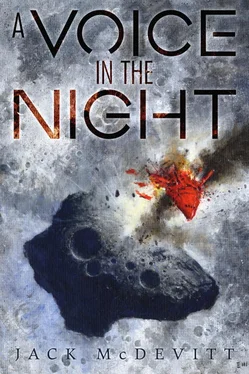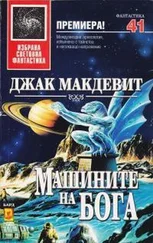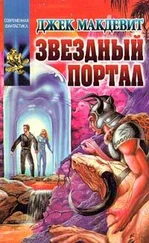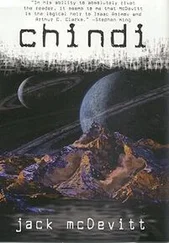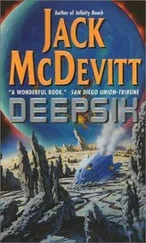I hated thinking of Lucy adrift out there, in the Kuiper Belt, almost five billion miles from Earth. She was probably trying to deal with a power failure. Which meant she might be alone in a dark ship so far away that a radio transmission would take seven and a half hours to reach her.
I’d been picked up during the Global Space Initiative with high hopes of leading the exploration of the solar system, and ultimately taking the new VR-2 vehicle, with its fusion engines, into the era of interstellar travel.
But I shouldn’t complain. I did get offworld. I’d taken the Coraggio to the asteroid belt on a test run. There, I’d secured an asteroid to the grappler and used it to fuel the return flight. And that had been about it for me. Although more than any astronaut had managed, it was nothing close to what I’d been led to expect. So yes, the disappearance of the Coraggio presented a golden opportunity, and I would have given anything to take over the Excelsior or the Audacia and ride to Lucy’s rescue. It wouldn’t happen, though. Not with Jeri available. So I decided to try for a compromise. “Morris, couldn’t you send us both out? It wouldn’t be a bad idea to have a back-up. Just in case.”
“You mean send both ships?”
“No, that wouldn’t work politically. But why not, just as insurance, maybe put us both in one or the other?”
He grinned weakly. “Sara, I would if I could. In fact, I’d like to go myself.”
“Morris, there’s an article by Harvey Bradshaw in the current Scientific American . He says there won’t be any humans on any of the interstellar flights. Ever. So why do we keep pretending?”
“Really? He said ever? ”
“Well, something like that. You know the argument.”
He nodded. “I know.”
The shortest feasible trip to any star was twenty-five years one way, and that would be to Alpha Centauri, where there was apparently not a thing worth looking at. Barnard’s Star was the only nearby destination of serious interest: one of its worlds was right in the middle of the biozone, and had an oxygen atmosphere, which very possibly meant life. And that, of course, from a human perspective, was the only reason to go. But Barnard’s lay twice as far as Alpha Centauri. So no. Unless Captain Kirk’s Enterprise s howed up, nobody was going anywhere…at least NOT for a while.
Except us machines.
No one could see a serious economic advantage to the space program. The various governments supporting GSI were all struggling to stay fiscally afloat. None of this, of course, was news to Morris. He knew the politics. Knew the science. Knew the math. But he had real trouble buying into the death of a dream. He sat staring out the window, his eyes probably fixed on the admin building, or maybe just on Lunar Park. Finally he made a resigned sound deep in his throat. “Sara?”
“Yes, Morris?”
“How serious are you? About wanting to go after the Coraggio ?”
“Are you kidding? I’d do anything.”
He took a deep breath. “All right,” he said finally. “No promises, but I’ll try—.”
Had there been a few people aboard the Coraggio, the media would have been all over us. They might be in trouble. Get out there and do something. It would have been breaking news all over the place. But, of course, you didn’t have to worry about an AI using up the available supply of oxygen, or freezing because of a climate-control malfunction, or whatever. In fact, you didn’t have to worry about an AI at all. And that realization didn’t help the program. Public interest focused instead on the inefficiency of the people who’d sent a multi-billion dollar vehicle out into the Kuiper Belt, and lost it.
I wasn’t connected to operational radio communications, so if a message arrived from Lucy, I wouldn’t know about it until someone told me. And so, during the first few hours after Calkin’s call, I was constantly asking whether we’d heard anything. I could see that everyone was coming to regard me as a nuisance, and finally Morris promised to let me know if the situation changed. “Immediately,” he added.
Late that afternoon, he came back from a conference. “Sara,” he said, “I can’t promise anything, but you and I are headed for the Cape.”
A technician came in and disconnected me. That eliminated my visual capability, though I could still hear what was going on around me. Morris wrapped me in plastic and put me in his briefcase. Then we took the elevator down to the first floor. “A car’s waiting for us,” he said.
“Are Mary and the kids coming?” I asked.
“No, Sara. We didn’t want to pull the guys out of school. I’ll bring everybody out in June.”
An hour later we boarded a small jet with two other passengers and headed for the Cape.
The other passengers knew about the Coraggio . They were being called in to run tests on the Excelsior .
Once in the air, Morris took me out of the briefcase. “Morris,” I said, trying to sound perfectly cool, “what are my chances?”
He shook his head. “I haven’t pushed for it yet, Sara. But you wouldn’t have any kind of chance at all if you’re not there when the decision gets made.”
“Okay.”
“We can’t rush this.” He put one hand on my casing. “I’ll keep you informed.”
“Make sure Calkin knows I took the Coraggio out to the asteroid belt.”
“He knows. I’ve already reminded him.”
“Okay. Thanks.”
“It’s beautiful out there,” he said.
At first I thought we were still talking about the asteroid belt. Then I realized he was looking out the window. I couldn’t see him, of course. Anyhow, it was only an attempt to change the subject. One of the other passengers, a woman with a soft voice, had apparently overheard us talking and asked about me. He introduced me, and we began discussing NASA’s current state. The President, in his weekly press conference, held while we were headed for the airport, had denied that more cuts were coming. The Coraggio story broke while he was still onstage. Somebody asked what had happened. Another reporter wanted to know whether it wasn’t time to quit on the space program and stop wasting money. The President tried to sound reassuring.

I didn’t really know what I was hoping for. Lucy reporting back that she was okay? Or a blown drive unit and me riding to the rescue? It seemed unlikely they’d give me a chance to do that, though I thought it would have been the right move. We took to making small talk, which I’m not good at. So I focused my attention on the radio. We were already the prime topic on several talk shows. On NPR’s Afternoon Bill , the host predicted that even if we found the Coraggio , wholesale changes would ensue at NASA. A reporter from the Washington Post thought we should be closed down: “Let’s face reality, Bill. Space flight’s expensive, and we get no benefit from it. It’s time to back off.”
The Jake Wallace Show had Marvin Clavis as a guest. Clavis had done the breakthrough work to put together the fusion drive. When asked for his opinion about what might have gone wrong, he admitted that, at this stage, everything was guesswork.
Читать дальше
